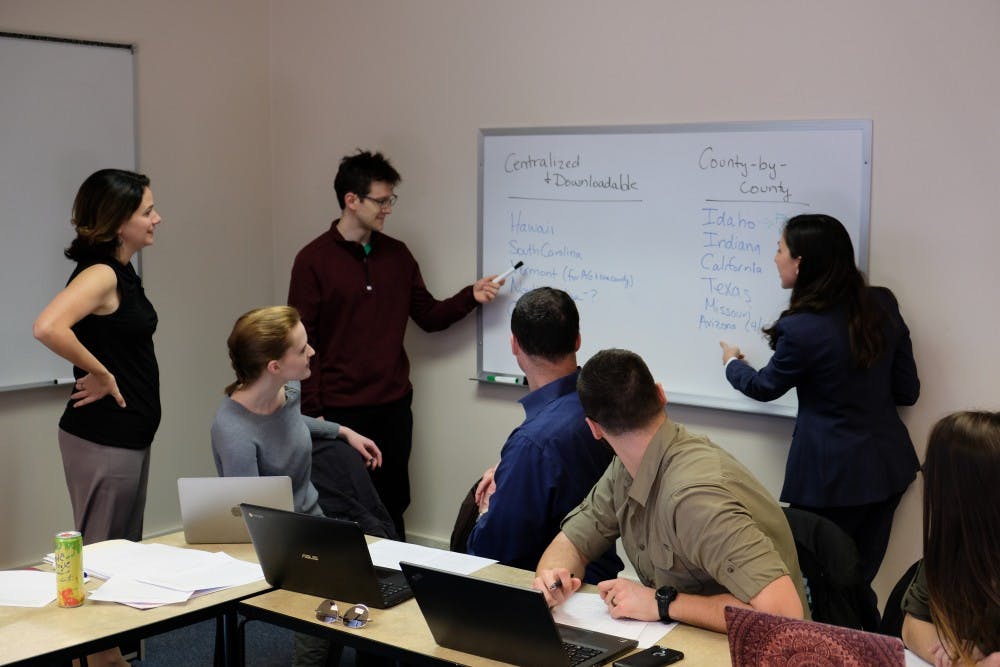In a democracy where checks and balances play the biggest role in balancing power between high-ranking officials, prosecutors slip between the cracks. As elected officials, the only check they face is voters, who sometimes neglect to vote if the prosecutor is running unopposed.
To restore some accountability, UNC’s School of Law created the Prosecutors and Politics Project, whose aim is to collect and publicize data concerning donations to prosecutors and the political setting in which they run. Carissa Hessick, professor of law, is spearheading the project.
“The idea is to gather information about political donations to the campaigns of elected prosecutors and local district attorneys and state level Attorneys General, so that as an academic matter, we can have a better understanding,” Hessick said. “The goal is to make the info available to the broader public so voters have a better opportunity to see who it is their elected officials are accepting money from.”
After receiving a donation to cover the costs for 10 research assistants and data collection, Hessick began finding students in the law school to help research the more than 2,000 prosecutors nationwide. Each student focuses on specific states since states record contributions differently.
First-year law student Mackenzie Harmon focuses on Alabama and New York. While New York maintains diligent records concerning contributions, Alabama has a less centralized system and forces Harmon to look through individual reports. New York is home to District Attorney Cyrus Vance Jr. who has recently been under fire for dropping cases against citizens whose defense attorneys donated to Vance.
“It’s easy to look at something like the Cyrus Vance case in New York, where he decided not to prosecute major cases, but I think the more common problem is the small things that you don’t notice unless you have spent time combing through government records and figuring out what money is going where and what effects that might be having on district attorney decisions,” Harmon said.
Alison Rossi, a first-year law student and a research associate working with the program, is focusing on California, where data gathering is difficult due to the lack of specificity in public contribution records.
“It’s interesting to see that California has particular problems with District Attorneys,” Rossi said. “There are a lot of stories and it just keeps coming up when I’m researching.”
Donations from defense attorneys are not the only contribution Hessick has seen that could cause ethical predicaments.



